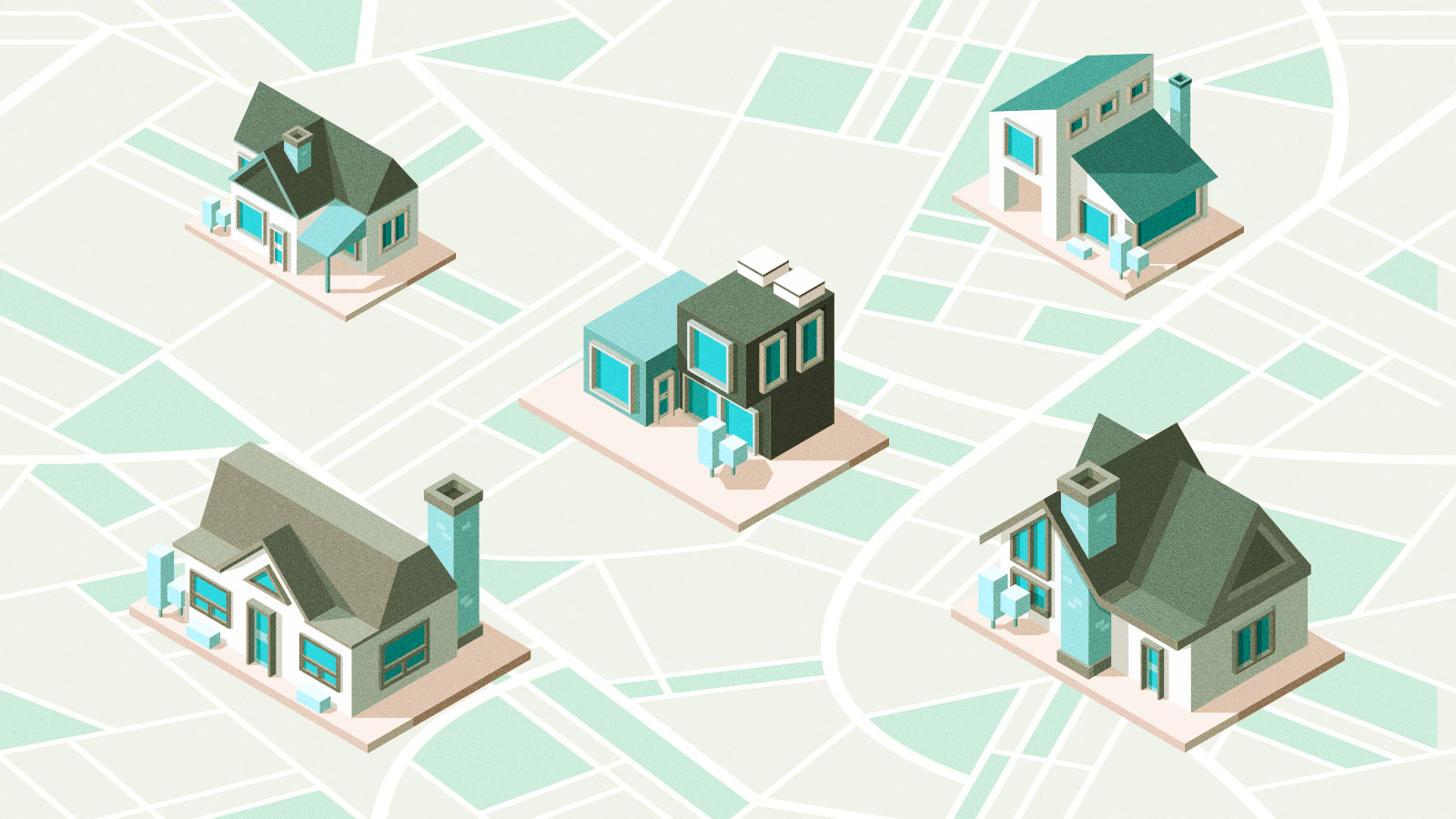As we all know, 2020 will go down in history as an unprecedented and trying time for our country and the world at large. Covid has affected virtually every person in every country in the world. It re-shaped the way we live, work, socialize and go about our daily lives.
While many businesses and industries suffered as a result of this new way of life, the luxury real estate market flourished, and will continue to grow in 2021, as many affluent consumers look for ways to upgrade to larger residences with more amenities, greater outdoor spaces and less population density.
They will continue to realign their priorities to spend more on real estate that gives them and their families a sense of security, health safety and privacy in a cocoon all their own. Here we highlight top trends to expect in 2021 in the luxury real estate market:
Trading City Culture for the Space of Suburbia
In the U.S., home prices have reached record highs as buyers looking to flee dense cities are seeing intense competition for single-family homes that are in short supply.
New York City, in particular, saw a mass exodus last year and plummeting transactions once the city became the epicenter of the pandemic, and odds are those residents are not returning in great numbers in 2021 despite distribution of a vaccine.
When the pandemic struck, New York’s luxury market was only just recovering from back-to-back tax changes at the federal and state levels that had disincentivized high-net-worth individuals from buying or even residing in New York City.
But then the five boroughs faced the deadliest Covid-19 outbreak of the early pandemic, sending high earners looking for refuge everywhere from Florida to New York’s suburban areas. While other luxury markets saw a swift rebound in the summer and fall of 2020, New York City’s luxury sector has only recently begun to see new contracts normalize for homes asking $4 million or more.
And for those deals that are taking place, buyers’ priorities have changed, with a surge of interest in Brooklyn’s slightly more affordable townhouses, as previously dedicated city dwellers look for more privacy. Agents have also noted growing activity among buyers in search of discounts at the highest echelons of the market.
Townhouses, terraced apartments, apartments with alcoves or small rooms that can be converted into offices all are attracting attention due to buyer concerns over sharing an elevator, being cooped up indoors and the need for a home workspace.
These trends are predicted to continue as people continue to work remotely and school their kids from home.
Shift in Importance of Amenities
Prior to the recent pandemic, most residential buyers were not as concerned about a building’s cleaning regimen and specifics around air filtration. However, these questions continue to be more commonplace. Cleanliness is now of utmost importance, in addition to upgrading HVAC systems and adding UV lighting to high-traffic parts of buildings. As a result, many management companies have expanded their cleaning staff and schedules accordingly.
Amenity spaces, which were beginning to trend pre-Covid, are becoming even more important to buyers. Residents focused on luxury condominiums are seeking out co-working spaces, larger outdoor areas and roof decks, health-focused programming and wellness services.
For residential buildings, the concept of wellness amenities has evolved from on-site spas to a category that encompasses full-blown cleaning and sanitation programming, high-tech lighting and air-filtration, and in some cases, on-site medical care.
In Pompano Beach, Florida, luxury development SOLEMAR has equipped each apartment with wellness technology designed by Delos to improve everything from a resident’s sleep to their energy. These kinds of full-service, in-building health-care options are only likely to expand in the coming year.
Buyers and renters are wanting apartments with dedicated home offices, and that demand extends into a building’s common areas, as well. The Ritz-Carlton Residences in Miami Beach have converted on-site guest suites into private offices, available for existing residents to purchase. The offices include terraces, as well as the option to add multiple monitors and exercise equipment such as a standing desk or Peloton spin bike.
Many luxury buildings with larger exercise areas are either implementing rigorous cleaning regimens, spacing out machines or even breaking up the space, creating separate rooms for cardio, weights, stretching and Pilates. Future developments will see a shift from larger gyms to more personalized spaces that can be reserved.
And with winter lockdowns looming in some cities, we expect to see heat lamps, fire pits and other efforts to ensure that outdoor areas can remain a year-round amenity.
South Florida Luxury Real Estate Continues to Grow
In the second half of 2020, prospective buyers inundated South Florida’s mansion market as the pandemic fueled interest from high-cost Northeastern and Western states toward Florida — a trend that’s likely to define 2021 as well.
The desire for more land, larger houses and the ability to be outside year-round attracted home buyers to Florida in masses during a time when many were confined to spending time at home. Incoming buyers skewed, unsurprisingly, toward a more affluent set, who were able to work from home or uproot their businesses to Florida, and it’s paid off for the luxury markets in Miami, Fort Lauderdale and Palm Beach (and their more inland luxury neighbors).
As an example, new contracts signed for million-dollar-plus houses in Miami-Dade County in November were up 54% over last year, and the soaring demand for luxury single-family homes has been felt even more outside of Miami. In Palm Beach County, the number of single-family home deals above $1 million nearly tripled from a year ago in November, according to data from Douglas Elliman and appraisal firm Miller Samuel.
“The entire Florida market is experiencing a big increase in demand, especially in single-family homes and larger condominiums,” said Beth Butler, southeast regional director of new development at Compass, adding that she’s optimistic about the outlook for 2021. “There seems to be a high demand in the luxury space.”
Winter in the Northeast as the pandemic rages will likely spur even more individuals to move to Florida, said Craig Studnicky, co-founder and CEO of real estate company RelatedISG.
Condominiums are also seeing growth. With little inventory available for single-family homes, affluent buyers in South Florida are also considering larger, well-amenitized apartments for a potential boost to the luxury condo market in Miami and its neighboring barrier islands. That will help to offset Miami’s luxury condo market, which had been challenged in recent years from oversupply, especially with the next wave of condo construction presales a couple of years away.
Meanwhile, the reopening of foreign travel, and a U.S. dollar many analysts have predicted will weaken during the global economic recovery, may further fuel condo activity in Miami and Miami Beach in the second half of 2021 as Latin American buyers return to the city.
New Construction and Development
The answer to high demand among homebuyers is naturally to build new houses, and for those houses to meet the space requirements many are seeking after a year spent working, learning and relaxing all at home.
Fortunately, homebuilders appear to be rising to the challenge. The U.S. Census Bureau reported more than 1.54 million housing starts, or the beginning of construction on a house, in November 2020. The rate of new home construction is 1.2% higher than October, and 12.8% above the rate of housing starts in November 2019.
Looking forward to 2021, homebuilders are expected to continue to ramp up new construction. Building permits issued, which reveals planned construction on homes that has not yet started, were nearly 1.64 million for November 2020, according to the U.S. Census Bureau. In 2021, Realtor.com predicts housing starts will be up 9% compared to 2020.
Additionally, residential luxury real estate developers have begun to rethink their strategies to adapt to buyer preferences following the Covid pandemic. Many have re-developed plans to include office space, expand outdoor areas and add in-demand amenities like air filtration systems and touchless technology. Projects that have reimagined design plans to adapt to these changing times have been attracting more attention from prospective buyers.
So, what does all of this mean for the luxury real estate market?
The industry is poised for additional growth in 2021, particularly for luxury developments that are catering to the changing needs of consumers post-pandemic. It will be more important than ever for real estate developers to position their existing and new developments in a way that meets the evolving needs of prospective buyers.
Are you a real estate developer looking for a trusted partner to help convey your bold vision for your luxury real estate project and develop strategies to reach your core buyer?
Ideabar is a national marketing and media agency owned by Cox Enterprises that changes minds and moves markets for brands it believes in through branding, creative, interactive and media services.
We know that every organization has a powerful story to tell – one that impacts the bottom line. Come talk to us at Ideabar and see how we can help you better tell yours.
Sources:
https://www.mansionglobal.com/articles/2021-the-year-ahead-in-luxury-real-estate-222211
https://realestate.usnews.com/real-estate/articles/what-to-expect-from-the-housing-market-in-2021

